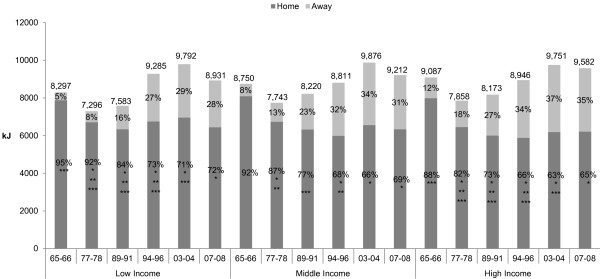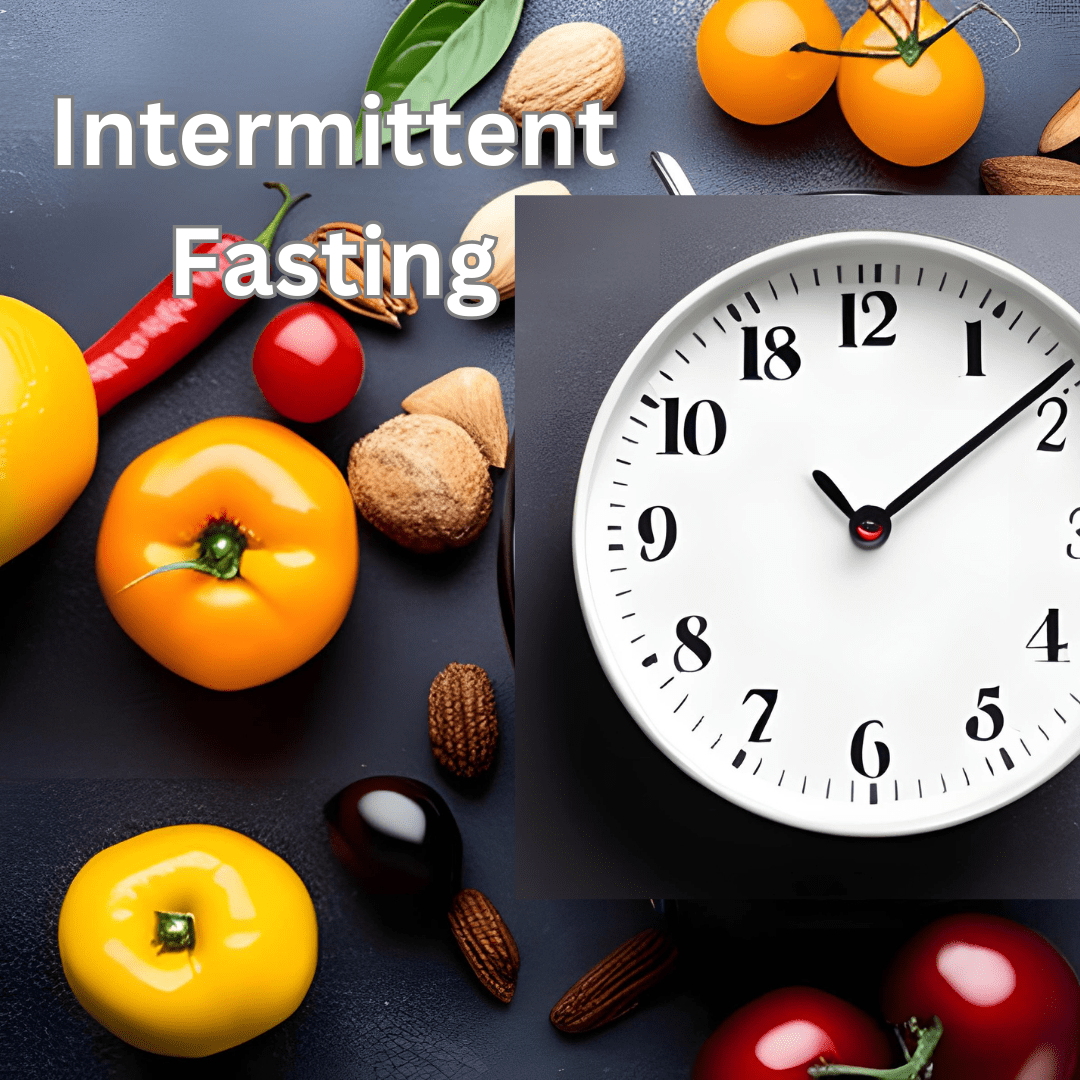
About Nutrition for Fat Loss
Are you trying to lose weight but feel overwhelmed by all the information out there? Don’t worry, you’re not alone. With so many different diets and weight loss strategies, it can be hard to know what really works. However, there are some key principles of nutrition for fat loss that are scientifically proven to be effective. In this article, we’ll break down these principles in a way that’s easy to understand, so you can start losing weight today.
But first, we need to understand the root cause of a the problem on a deeper level…
Why is it so difficult to lose weight and keep it off?
- Ultra-processed foods cause people to eat more – Ultra-processed foods are high in salt, sugar, and fat, but low in protein, fiber, and important nutrients compared to unprocessed foods. A 2019 study found that people ate about 500 calories more per day on an ultra-processed diet than they did on a minimally processed diet. What’s even more crazy is eating ultra-processed foods leads to weight gain in human volunteers in as little as two weeks, according to a study done by the National Institute of Health Clinical Center.
- Companies are making and advertising more cheap, highly-processed foods that are not good for you. Then, they advertise it to you and make it appealing to eat. This is one of the reasons for increased obesity rates that have increased over the last few decades.
- Overeating is addictive – The book “The End of Overeating: Taking Control of the Insatiable American Appetite” by David A. Kessler examines how overeating becomes an addiction. It discusses how certain foods can have supernormal appetitive properties that hijack our brain chemistry and lead to overconsumption.
- Ultra-processed foods are a high percentage of people’s diets – According to a 2016 study, ultra-processed foods account for nearly 60% of total calories consumed in the US diet. The same study found that added sugars represented 21.1% of calories in ultra-processed foods, which is eight times higher than in processed foods and five times higher than in unprocessed or minimally processed foods.
- Ultra-processed foods are usually high in calories, take up less space in volume, and have fewer nutrients compared to unprocessed foods like fruits, vegetables, and fish (per a 2020 study published in Nutrients).
- Not as many people make home-made meals as they used to & eating more calories when they do – Below shows how eating out has increased in frequency over time. When you eat out, you eat more calories. Not only has the frequency increased, but the total number of calories eaten at restaurants has increased too. In the graph below, Kilo Joules is what some international countries use to measure energy consumed. Roughly 1 KJ per .2 Calories are equivalent. So, for example the middle income most recent data point of 9212 translates to approximately 2200 calories.

*Daily energy intake of US adults by food source, 1965-1966 to 2007-2008. Data sources: Household Food Consumption Survey (HFCS) of 1965–1966 (n=4,114), Nationwide Food Consumption Survey (NFCS) of 1977–1978 (n=12,935), Continuing Survey of Food Intakes by Individuals (CSFII) of 1989–1991 (n=7,750), CSFII of 1994–1996 (n=6,894), National Health and Nutrition Examination Survey (NHANES) of 2003–2004 (n=3,138), and NHANES of 2007–2008 (n=3,734). - As you lose weight, your body will weigh less, which will naturally result in lower resting metabolism. Old weight loss models said that you could lose weight consistently by eating 3500 less per pound. We now know this is an overestimate. So don’t get discouraged if progress slows.
In studies on adults reporting the proportion of total energy intake from ultra-processed foods (UPF), Malaysia was lowest (23%), while the highest levels were reported in the USA (55.5–56.1%). In studies in adults reporting servings per day or frequency of UPF consumption, one study in USA reported a mean of 4 times a day, and one study in Spain reported 1.4–5.3 servings per day from the lowest to highest quartile of UPF intake.
What Studies Say
Studies have shown that there is no significant difference in fat loss between diets that vary in carbohydrate and fat content, as long as the calorie and protein content is the same. However, certain dietary factors can affect fat loss by impacting energy expenditure, hunger, and satiety, which affects energy intake. Processed foods, for instance, have been found to increase energy intake, leading to weight gain. Studies have also found that protein helps preserve muscle during weight loss and can reduce hunger and prolong satiety. Also, note that studies have shown that fiber also helps reduce hunger and prolong satiety.
An Energy Deficit is the Most Important Factor in Weight Loss
If you want to lose weight, you need to be in an energy deficit. This means that you need to burn more calories than you consume. It doesn’t matter how you create this deficit, whether it’s through diet, exercise, or a combination of both. The important thing is that you’re burning more calories than you’re taking in.
Calories are Affected by Thermogenic Effect of Food, Your Gut Microbiome, Hormones, Exercise, NEAT Activity, and Basal Metabolic Rate
Calories are not created equal. They are affected by many factors, including the thermogenic effect of food, your gut microbiome, hormones, exercise, NEAT (non-exercise activity thermogenesis) activity, and basal metabolic rate (BMR), which includes brain activity. Let’s take a closer look at each of these factors:
- Thermogenic Effect of Food: Some foods require more energy to digest and absorb than others. This is known as the thermogenic effect of food. Foods that are high in protein have a higher thermogenic effect than foods high in fat or carbohydrates.
- Gut Microbiome: Your gut microbiome is the collection of bacteria, fungi, and other microorganisms that live in your digestive tract. Certain types of bacteria in your gut can help you burn more fat. Eating pre- and pro-biotic-friendly foods help to nurture a gut microbiome that helps better burn fat.
- Hormones: Hormones play a role in regulating your metabolism and appetite. Insulin, for example, is a hormone that regulates blood sugar levels and can affect fat storage.
- Exercise: Exercise burns calories and can increase your BMR, which means you’ll burn more calories even when you’re not exercising.
- NEAT Activity: NEAT refers to non-exercise activity thermogenesis, which is the energy you burn doing everyday activities like walking, fidgeting, and standing.
- Basal Metabolic Rate (BMR): Your BMR is the number of calories your body burns at rest to keep you alive. This includes basic bodily functions like breathing, circulating blood, and maintaining body temperature.
Eat More Higher Quality Foods and Less Lower Quality Foods
The quality of the food you eat can have a big impact on weight loss. Generally speaking, you should aim to eat more whole, nutrient-dense foods and fewer processed foods. Whole foods are foods that are minimally processed and still in their natural state. Nutrient-dense foods are foods that are high in nutrients but low in calories. Examples of whole, nutrient-dense foods include:
- Fruits and vegetables
- Whole grains
- Lean proteins (e.g. chicken, fish, low-sugar Greek yogurt) and eggs
High Protein Diet Can Work, but Make Sure to Get Quality Sources of Protein
Protein is an important nutrient for weight loss because it helps you feel full and satisfied, which can help you eat less. Most people don’t get enough protein. A study published in the Journal of Nutrition, Health & Aging found that up to 46% of the oldest participants in the study did not consume enough protein on a regular basis. A third of them were missing 30 grams (g) of protein from their daily diet, which is equivalent to over half of the recommended intake for an adult who weighs 160 pounds or 72.6 kilograms (kg).
Regardless of what diet you choose to do, this is often something that holds people back from losing fat and maintaining (or growing) muscle mass. However, not all sources of protein are created equal. You should aim to get your protein from quality sources like seafood, chicken, eggs, and low-sugar Greek yogurt. Red meats should be consumed in less, or in moderation, due to studies that show adverse health effects.
If you are a vegetarian, it’s important to either find good sources of complete proteins, like quinoa, and/or eat foods that pair well together to create complete proteins (like brown rice and beans).
Non-Starchy Vegetables and Certain Fruits Like Berries Contain Natural Fat Burning Characteristics
Some foods can actually help you burn fat. Non-starchy vegetables and certain fruits like berries contain natural fat-burning characteristics, which can be beneficial for weight loss. According to a study by Harvard T.H. Chan School of Public Health researchers, eating more non-starchy vegetables and fruits promote weight loss. The study found that participants who ate more non-starchy vegetables and fruits, such as string beans, green leafy vegetables, berries, apples, or pears lost weight. Non-starchy vegetables are low in calories and carbohydrates compared to starchy vegetables such as potatoes and corn. They are also high in fiber and essential vitamins and minerals.
Non-starchy vegetables are high in fiber, which can help you feel full and satisfied, while also regulating your blood sugar levels. Berries, on the other hand, contain antioxidants and other compounds that can help boost your metabolism and burn fat. Some examples of non-starchy vegetables and berries that fit the bill include:
Non-Starchy Vegetables: broccoli, spinach, kale, brussels sprouts, cauliflower, asparagus, cucumbers, bell peppers,
Berries: blueberries, raspberries, strawberries, blackberries
Meal Timing Makes a Difference
When you eat can be just as important as what you eat. Meal timing can impact your metabolism and help you burn fat more efficiently. For example, eating a protein-rich breakfast can help regulate your appetite and reduce cravings throughout the day. Eating a meal high in protein and carbohydrates after a workout can help replenish your energy stores and support muscle growth. Here are some tips for meal timing:
Eat a protein-rich breakfast
Eat a meal high in protein and carbohydrates after a workout
Avoid eating late at night
Consider intermittent fasting
Intermittent Fasting Works
Intermittent fasting is a dietary approach that involves alternating periods of fasting and eating. There are many different methods of intermittent fasting, but the most popular is the 16/8 method, which involves fasting for 16 hours and eating within an 8-hour window. Intermittent fasting can help you create an energy deficit by reducing the amount of time you have to eat, while also providing other health benefits like improved insulin sensitivity and reduced inflammation.
Note as well, that you can maintain muscle mass if you consistently strength train and eat enough protein. A recent 2020 meta study proved this to be the case. This refutes the theory that you will always lose muscle mass by intermittent fasting (as some have theorized).
There is No Single Strategy for Fat Loss
It’s important to remember that there is no one-size-fits-all approach to fat loss. Keto, Mediterranean, Nordic, and other diets which emphasize eating whole foods while cutting out processed foods and foods with added sugars are effective. Everyone’s body is different, and what works for one person may not work for another. The key is to choose a strategy that works best for you and that you can stick to long-term. This may involve experimenting with different diets and exercise routines until you find what works best for you. Some important things to keep in mind include:
Choose a strategy that you enjoy and can stick to long-term
Focus on making sustainable lifestyle changes, not quick-fix solutions
Be patient and don’t give up if you don’t see results right away (or stop doing the lifestyle if you see dramatic results at first and then stop seeing results. It’s normal and part of your body adapting to the new weight).
People Tend to Over-estimate Calories and Other Nutrition Considerations
Also, note that people tend to over-estimate their caloric intake. So, it’s important to learn what proper portion sizes are and how to consistently eat adequate portions of high quality, whole foods.
Your body will adapt as you train it. A lot of times, people feel hungry when they are instead mis-interpreting other things driving the feeling: dehydration (thirst takes longer to feel better than when you eat), lack of sleep (which increases hunger cravings and less satiety/full), insufficient protein or fiber eaten at your last meal, and lack of quality foods your body needs (for micro-nutrients).
Nutrition plays a crucial role in weight loss. To lose weight, you need to consider:
- To be in an energy deficit, which can be achieved through diet, exercise, or a combination of both
- Long-term studies have proven that to keep it off consistently, a combination of nutrition and exercise maintains healthy weight.
- Calories are affected by many factors, including the thermogenic effect of food, your gut microbiome, hormones, exercise, NEAT activity, and BMR.
- Eating more whole, nutrient-dense foods and fewer processed foods can be beneficial for weight loss, as can a high-protein diet from quality sources like seafood, chicken, and low-sugar Greek yogurt.
- Non-starchy vegetables and certain fruits like berries can also help you burn fat naturally.
- Meal timing can impact your metabolism
- Intermittent fasting can be an effective weight loss strategy.
Remember, there is no one-size-fits-all approach to fat loss, so focus on finding a strategy that works best for you and that you can stick to long-term.
References:
Krok-Schoen, J.L., Archdeacon Price, A., Luo, M. et al. Low Dietary Protein Intakes and Associated Dietary Patterns and Functional Limitations in an Aging Population: A NHANES Analysis. J Nutr Health Aging 23, 338–347 (2019). https://doi.org/10.1007/s12603-019-1174-1
Bertoia ML, Mukamal KJ, Cahill LE, Hou T, Ludwig DS, et al. (2015) Changes in Intake of Fruits and Vegetables and Weight Change in United States Men and Women Followed for Up to 24 Years: Analysis from Three Prospective Cohort Studies. PLOS Medicine 12(9): e1001878. https://doi.org/10.1371/journal.pmed.1001878
Johns DJ, Hartmann-Boyce J, Jebb SA, Aveyard P; Behavioural Weight Management Review Group. Diet or exercise interventions vs combined behavioral weight management programs: a systematic review and meta-analysis of direct comparisons. J Acad Nutr Diet. 2014 Oct;114(10):1557-68. doi: 10.1016/j.jand.2014.07.005. PMID: 25257365; PMCID: PMC4180002.
Martínez Steele E, Baraldi LG, Louzada ML, Moubarac JC, Mozaffarian D, Monteiro CA. Ultra-processed foods and added sugars in the US diet: evidence from a nationally representative cross-sectional study. BMJ Open. 2016 Mar 9;6(3):e009892. doi: 10.1136/bmjopen-2015-009892. PMID: 26962035; PMCID: PMC4785287.
Hall KD, Guo J. Obesity Energetics: Body Weight Regulation and the Effects of Diet Composition. Gastroenterology. 2017 May;152(7):1718-1727.e3. doi: 10.1053/j.gastro.2017.01.052. Epub 2017 Feb 11. PMID: 28193517; PMCID: PMC5568065.
Hall KD, Ayuketah A, Brychta R, Cai H, Cassimatis T, Chen KY, Chung ST, Costa E, Courville A, Darcey V, Fletcher LA, Forde CG, Gharib AM, Guo J, Howard R, Joseph PV, McGehee S, Ouwerkerk R, Raisinger K, Rozga I, Stagliano M, Walter M, Walter PJ, Yang S, Zhou M. Ultra-Processed Diets Cause Excess Calorie Intake and Weight Gain: An Inpatient Randomized Controlled Trial of Ad Libitum Food Intake. Cell Metab. 2019 Jul 2;30(1):67-77.e3. doi: 10.1016/j.cmet.2019.05.008. Epub 2019 May 16. Erratum in: Cell Metab. 2019 Jul 2;30(1):226. Erratum in: Cell Metab. 2020 Oct 6;32(4):690. PMID: 31105044; PMCID: PMC7946062.
Leidy HJ, Clifton PM, Astrup A, Wycherley TP, Westerterp-Plantenga MS, Luscombe-Marsh ND, Woods SC, Mattes RD. The role of protein in weight loss and maintenance. Am J Clin Nutr. 2015 Jun;101(6):1320S-1329S. doi: 10.3945/ajcn.114.084038. Epub 2015 Apr 29. PMID: 25926512.
Bozzetto L, Costabile G, Della Pepa G, Ciciola P, Vetrani C, Vitale M, Rivellese AA, Annuzzi G. Dietary Fibre as a Unifying Remedy for the Whole Spectrum of Obesity-Associated Cardiovascular Risk. Nutrients. 2018 Jul 21;10(7):943. doi: 10.3390/nu10070943. PMID: 30037123; PMCID: PMC6073249.
Brown RE, Canning KL, Fung M, Jiandani D, Riddell MC, Macpherson AK, et al. Calorie estimation in adults differing in body weight class and weight loss status. Med Sci Sports Exerc. 2016;48:521–6. doi: 10.1249/MSS.0000000000000796.
Kim JY. Optimal Diet Strategies for Weight Loss and Weight Loss Maintenance. J Obes Metab Syndr. 2021 Mar 30;30(1):20-31. doi: 10.7570/jomes20065. PMID: 33107442; PMCID: PMC8017325.
Dinu M, Pagliai G, Angelino D, Rosi A, Dall’Asta M, Bresciani L, Ferraris C, Guglielmetti M, Godos J, Del Bo’ C, Nucci D, Meroni E, Landini L, Martini D, Sofi F. Effects of Popular Diets on Anthropometric and Cardiometabolic Parameters: An Umbrella Review of Meta-Analyses of Randomized Controlled Trials. Adv Nutr. 2020 Jul 1;11(4):815-833. doi: 10.1093/advances/nmaa006. PMID: 32059053; PMCID: PMC7360456.
Anton SD, Hida A, Heekin K, Sowalsky K, Karabetian C, Mutchie H, Leeuwenburgh C, Manini TM, Barnett TE. Effects of Popular Diets without Specific Calorie Targets on Weight Loss Outcomes: Systematic Review of Findings from Clinical Trials. Nutrients. 2017 Jul 31;9(8):822. doi: 10.3390/nu9080822. PMID: 28758964; PMCID: PMC5579615.
Poulsen SK, Due A, Jordy AB, Kiens B, Stark KD, Stender S, Holst C, Astrup A, Larsen TM. Health effect of the New Nordic Diet in adults with increased waist circumference: a 6-mo randomized controlled trial. Am J Clin Nutr. 2014 Jan;99(1):35-45. doi: 10.3945/ajcn.113.069393. Epub 2013 Nov 20. PMID: 24257725.
Keenan S, Cooke MB, Belski R. The Effects of Intermittent Fasting Combined with Resistance Training on Lean Body Mass: A Systematic Review of Human Studies. Nutrients. 2020 Aug 6;12(8):2349. doi: 10.3390/nu12082349. PMID: 32781538; PMCID: PMC7468742.
Elizabeth L, Machado P, Zinöcker M, Baker P, Lawrence M. Ultra-Processed Foods and Health Outcomes: A Narrative Review. Nutrients. 2020 Jun 30;12(7):1955. doi: 10.3390/nu12071955. PMID: 32630022; PMCID: PMC7399967.









